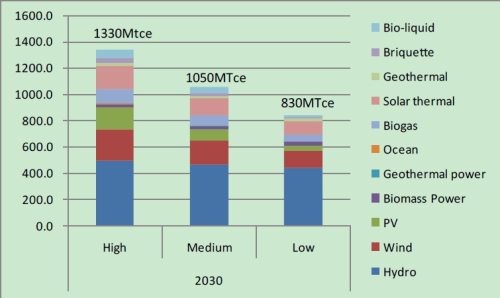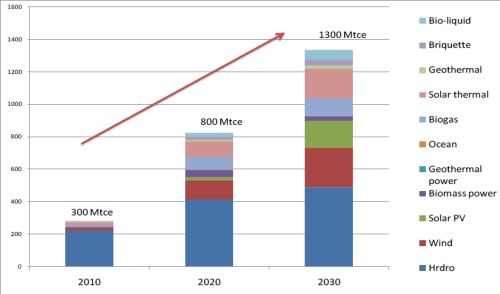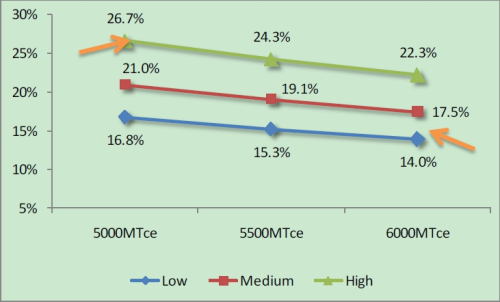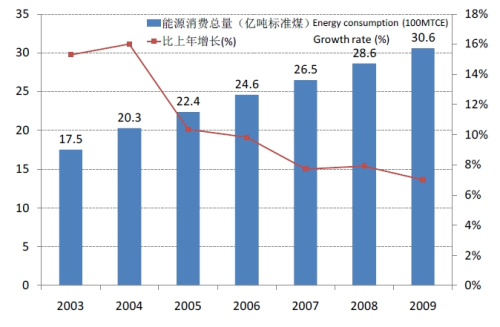



By Renewable Energy Focus staff
A report containing three scenarios for the contribution of renewable energy to China’s energy consumption, has been developed by CRED with funding from the Renewable Energy and Energy Efficiency Partnership (REEEP).
In the three scenarios, the renewable energy utilisation in China could be 8.3 billion tonnes of coal equivalent (tce), 10.5bn tce, and 13.3bn tce in the low, middle and high scenarios respectively.
The scenarios take into account China’s economic development targets, energy resource availability, environmental policies and the country’s future as a potential technology leader.
China’s renewable energy potential
| Type | Theoretical potential (hundred million kW) | Economic potential (hundred million kW) | Annual energy production (hundred million tce/year) |
| Wind | 43 | 7-12 | 5-8 |
| Solar | 1700bn tce | 22 | 11-14 |
| Biomass | - | - | 8.9 |
| Hydro | 6 | 5 | 8.6 |
| Geothermal | 462.65bn tce | 0.2 | 0.5 |
| Total | - | 59 | 40-46 |
China has already set the goal of 15% of its primary energy demand to be met by renewable energy by 2020.
“This report is ground-breaking in that [it] provide[s] an expert assessment on just how China could realistically cover over 20% of its energy demand from renewable sources by 2030,” says Li Junfeng, REEEP’s Regional Director for East Asia and Secretary General of the Chinese Renewable Energy Industries Association.
“And the stakeholder workshop helps galvanise support with the business community and provides a sound reference for policy-makers in setting an ambitious 2030 RE target.”
Binu Parthan, REEEP’s Deputy Director General, adds: “The ambitious voluntary low-carbon energy targets being pursued by China are having a significant positive impact on the global clean energy market, and this project supported by REEEP could offer a basis for [the] Government of China increasing the level of ambition in renewable energy.”
The report was developed following a workshop held in January with around 40 government energy planners, business representatives, researcher and clean industry associations.
